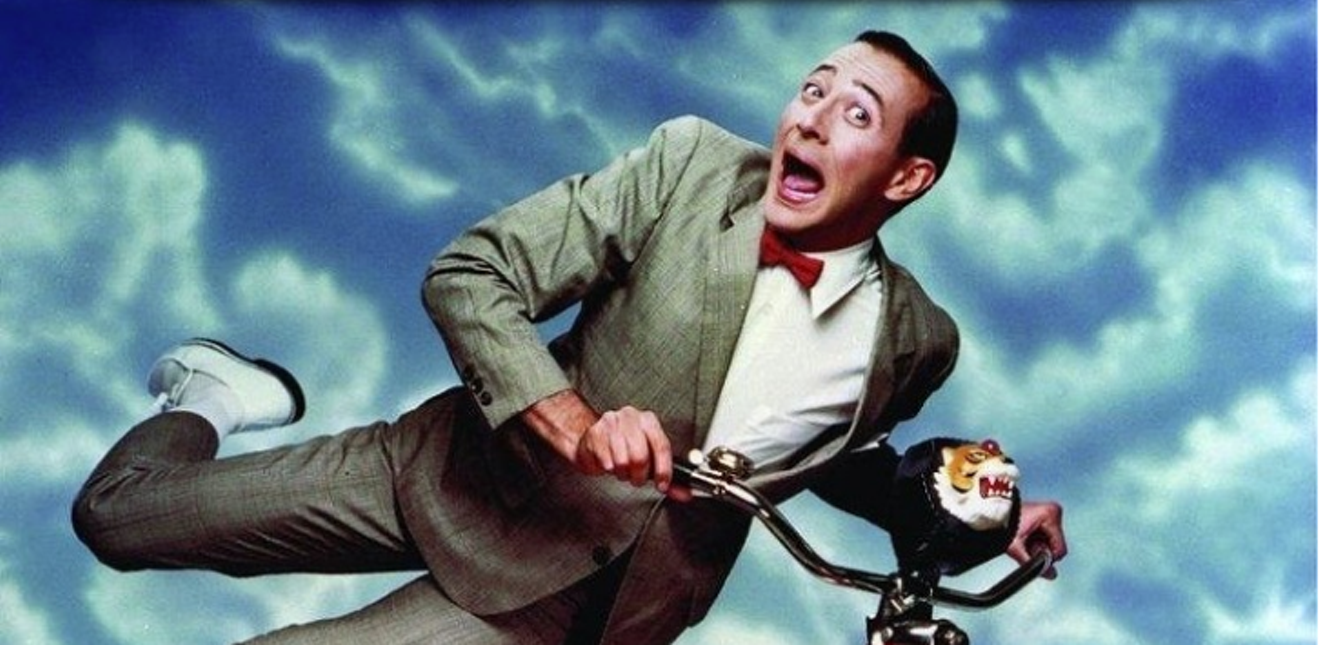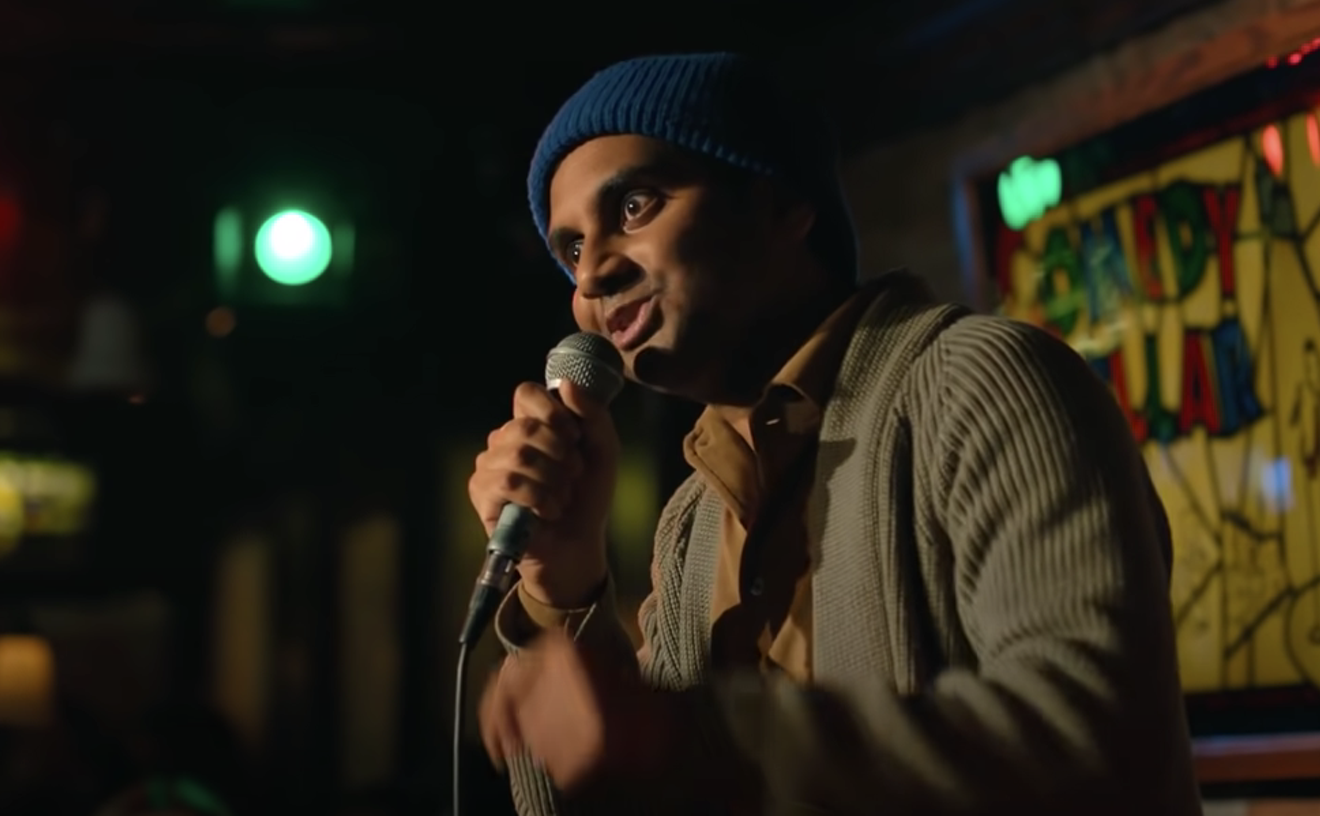Editor's note: Back in 2016, Westword published its last interview with Paul Reubens, in which he talked about the late Phil Hartman and more. Now that Reubens himself is gone, we're republishing the piece:
The Pee-wee Productions logo that kicks off the new Netflix film Pee-wee's Big Holiday trumpets comedian-turned-actor Paul Reubens' comeback as the formerly ubiquitous man-child. Forget about The Pee-wee Herman Show, Reubens' fan-service-intensive Broadway extravaganza. Big Holiday (which premieres March 18 on Netflix) plays like an un-self-conscious continuation of the character's surreal 1980s and ’90s adventures, the highest compliment one can give. We talked to Reubens about making out-of-time comedy, loving Russ Meyer and the late, great Phil Hartman.
Westword: There's surprisingly little in Pee-wee's Big Holiday that dates the film, save perhaps the character's love of kitsch and novelty amusements. What's interesting is that Pee-wee is an ’80s icon, and in the ’80s, you were riffing on nostalgia for the ’50s. Do you think people are nostalgic for an a historical version of the ’80s?
Paul Reubens: I see that, but I try very hard not to be influenced by it. I don't think consciously about what period I'm referring to. I'm certainly aware of it, but I wasn't necessarily evoking the ’50s with Big Adventure. There's also stuff from the ’20s, ’30s and ’40s. This new movie has ’70s and ’80s stuff in it. I think it has more to do with a general sort of classicism than the evocation of a specific period. I just like stuff that's simple, classic and universal.
My comedy's always been about Pee-wee Herman, about me. But I think I'm throwing back to old comedy. What people like or don't like about it is that it's super corny. When you watch old movies, for example, and realize: "Wow, they don't cut movies like that anymore." Because people don't have the attention spans they used to have. People are now used to quick cuts. I'm harkening back to a slower pace. The joke structure of my comedy is different. These aren't belly laughs, not a laugh every second. I think people are either thrown off by that or they like it.
One of the most surprising references in Big Holiday is the three-woman girl gang, an homage to Russ Meyer's Faster, Pussycat! Kill! Kill! That seems out of place in what often feels like your version of ’50s-era suburbia. Were you a Russ Meyer fan?
I think Faster, Pussycat! is one of the most underrated American films ever made. Almost every single shot of that movie is framed on the same level as the European filmmakers who were getting such incredible attention. There are many not-so-incredible Russ Meyer movies, but Faster, Pussycat! is a classic by any standard. I would be very excited if young people watching my movie were turned on to Meyer's film. It's required viewing, in my opinion.
I was almost in a remake. Russ Meyer had talked about remaking Faster, Pussycat! for many years. And he told me he wanted to cast me as the gas station attendant. He's the guy that Tura Satana says something to like, “What are you looking at, squirrel!?”
What do fans tell you they remember about the character that you wouldn't necessarily expect?
People tell me that the reason that they became an artist is because of Pee-wee's Playhouse. I'm proud of that. A lot of people tell me that I gave them nightmares because of Large Marge [Pee-wee's Big Adventure's spooky truck driver]. And a lot of people think I can repair their Pee-wee doll.
I'm aware I've had an influence on people. That's a thing that happens almost automatically when you have a kids show, because kids are very impressionable. I was very aware that I needed to be a role model and that we were gonna try to be instructional without feeling like that.
Let's talk about a couple of your collaborators. Tell me a little about working with [underground illustrator/graphic designer] Gary Panter on Pee-wee's Playhouse. Where did you meet him, and how did you two design the playhouse together?
The punk movement was happening at the same time I was starting out. I could see posters everywhere around L.A. for different punk concerts. And they were all Gary's. I just loved his work. He also had a cartoon strip called Jimbo. I sought him out and asked him, "Would you come see my character at the Groundlings? I get this five-minute segment there and am going to spin it off into its own stage production. I would love for you to do the poster."
He came to the show and said, “I'd love to do the poster. But I'd also love to design the whole thing!” It was one of those kismet sort of things. We were able to talk in shorthand immediately. We were very much in the same ballpark.
One of your most constant collaborators for Pee-wee, in both TV and movies, was Phil Hartman. How would you describe the way you two collaborated?
Phil was already in the Groundlings when I joined. He was one of the stars, and we became friends instantly. Phil split his time between being a graphic designer and being an actor. He wasn't really sure what to pursue, so he was doing both. He always loved Pee-wee Herman, but he used to give me a hard time originally about focusing on this instead of doing all of my other characters. I liked the idea of becoming Pee-wee, and letting the public think Pee-wee was a real person. Phil was very frustrated by that. He thought I was ... uh … squandering my talent.
I hired Phil to co-write Pee-wee's Big Adventure. We didn't really know what we were doing at that point. We'd both written stuff at that point, but it was mostly just improvising. Sitting down and consciously writing something is very different than improvising. I bought the Syd Field book on writing screenplays, and me, Phil and a guy named Mike Varhol did exactly what was said in that book. I mean, exactly, right down to getting 3x5 file cards and writing each beat down and putting it on a bulletin board. We did every single thing like that. As a result, Big Adventure is extremely classical in its structure because we were literally doing it by the book. So on page 30, Pee-wee's bike gets stolen. On page 60, it gets found. It's a whole thing.
Phil and I collaborated for years. I brought Phil and [fellow longtime collaborator] John Paragon with me to New York when I hosted Saturday Night Live. That was Phil's introduction to Lorne Michaels. We worked together on a lot of stuff, along with a coffee group of some of the other Groundlings: Phil, me, John Paragon ... three men, and three women. We were going to go out and rule the world.
That didn't work out very good. I think about Phil all the time.
[
{
"name": "Air - MediumRectangle - Inline Content - Mobile Display Size",
"component": "12017618",
"insertPoint": "2",
"requiredCountToDisplay": "2"
},{
"name": "Editor Picks",
"component": "17242653",
"insertPoint": "4",
"requiredCountToDisplay": "1"
},{
"name": "Inline Links",
"component": "18838239",
"insertPoint": "8th",
"startingPoint": 8,
"requiredCountToDisplay": "7",
"maxInsertions": 25
},{
"name": "Air - MediumRectangle - Combo - Inline Content",
"component": "17261320",
"insertPoint": "8th",
"startingPoint": 8,
"requiredCountToDisplay": "7",
"maxInsertions": 25
},{
"name": "Inline Links",
"component": "18838239",
"insertPoint": "8th",
"startingPoint": 12,
"requiredCountToDisplay": "11",
"maxInsertions": 25
},{
"name": "Air - Leaderboard Tower - Combo - Inline Content",
"component": "17261321",
"insertPoint": "8th",
"startingPoint": 12,
"requiredCountToDisplay": "11",
"maxInsertions": 25
}
]











